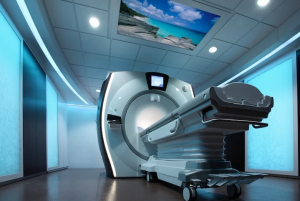Eye Movement Desensitization and Reprocessing (EMDR) therapy has gained widespread recognition as an effective approach to treating trauma-related conditions and various mental health issues. For mental health professionals seeking to excel in their practice and specialize in EMDR, advanced training is a crucial step. In this comprehensive article, we will explore the essentials of EMDR Advanced Training, including its significance, what it entails, and how it empowers therapists to provide high-quality, targeted therapy to their clients.
Understanding EMDR Therapy
Before diving into the specifics of EMDR Advanced Training, it's essential to have a solid understanding of EMDR therapy and why it has gained recognition as an effective therapeutic modality.
1. The EMDR Therapy Process: EMDR therapy is an evidence-based, eight-phase approach designed to help individuals process distressing memories and alleviate associated emotional distress. The key phases of EMDR therapy include:
• History-Taking and Treatment Planning: The therapist assesses the client's history and identifies target memories for processing.
• Preparation: The therapist educates the client about EMDR therapy and establishes a therapeutic relationship based on trust and safety.
• Assessment: The client identifies negative beliefs associated with target memories and rates the distress these memories cause.
• Desensitization: Bilateral stimulation, often in the form of eye movements, is used to help the client process the target memory, reducing emotional distress.
• Installation: Positive beliefs are strengthened, replacing the negative beliefs associated with the target memory.
• Body Scan: Any remaining physical tension or discomfort is addressed.
• Closure: The therapist ensures the client is emotionally stable and provides coping strategies for managing distress.
• Reevaluation: The client reviews progress and identifies any remaining issues.
2. Efficacy of EMDR: EMDR therapy is recognized by leading organizations, including the American Psychological Association and the World Health Organization, as an effective treatment for post-traumatic stress disorder (PTSD) and trauma-related conditions. It has also demonstrated efficacy in addressing anxiety, depression, and other mental health issues.
The Role of EMDR Advanced Training
EMDR Advanced Training Explained is an essential component of a mental health professional's journey toward expertise in EMDR therapy. These advanced programs offer specialized knowledge and skills to therapists, allowing them to address the unique needs of different client populations or specialized treatment applications. Now, let's explore the essentials of EMDR Advanced Training and why they are vital.
Essentials of EMDR Advanced Training:
1. Specialized Curriculum:
• EMDR Advanced Training modules provide a specialized curriculum tailored to address specific populations, unique challenges, or specialized treatment applications.
• The curriculum equips therapists with the expertise needed to provide targeted therapy.
2. Duration and Schedule:
• EMDR Advanced Training programs vary in duration, often spanning several days or weeks.
• Training schedules may include in-person workshops, online sessions, or a combination of both, allowing flexibility for participants.
3. Experienced Trainers:
• These programs are typically led by experienced trainers and consultants who are experts in the field of EMDR therapy.
• The trainers bring practical knowledge and real-world experience to the training, offering valuable insights and guidance to participants.
4. Case Discussions and Practical Exercises:
• EMDR Advanced Training emphasizes case discussions and practical exercises, enabling therapists to apply EMDR techniques and protocols to specific scenarios.
• This hands-on approach enhances therapists' skills and confidence in their specialized area.
5. Consultation Opportunities:
• Many EMDR Advanced Training programs include opportunities for consultation or case review.
• Consultation allows therapists to seek guidance, ask questions, and receive feedback on challenging cases within the context of the specialized training.
Examples of EMDR Advanced Training Modules:
1. EMDR with Children and Adolescents:
• This module focuses on adapting EMDR therapy to meet the unique needs of young clients. It covers techniques and strategies for working effectively with children and adolescents.
2. EMDR with Veterans and First Responders:
• Therapists interested in specializing in working with military veterans and first responders can benefit from this module. It addresses the specific trauma and stressors experienced by these populations.
3. EMDR and Dissociation:
• This module delves into working with clients experiencing dissociative symptoms and complex trauma. Therapists learn specialized techniques for addressing dissociation within the context of EMDR therapy.
4. EMDR and Addictions:
• Therapists looking to integrate EMDR therapy into addiction treatment can explore this module. It provides insights into addressing underlying trauma in clients with substance use disorders.
Why EMDR Advanced Training is Essential:
1. Specialized Expertise:
• Completing these modules equips therapists with specialized expertise in specific areas of EMDR therapy.
• Therapists become well-prepared to address the unique needs and challenges of their target populations or specialized treatment applications.
2. Enhanced Treatment Outcomes:
• Therapists who undergo Advanced Training are more likely to achieve positive treatment outcomes, especially when working with specialized populations or complex cases.
3. Expanded Client Base:
• With specialized expertise, therapists can attract a broader range of clients seeking EMDR therapy for specific issues or populations.
4. Confidence and Competence:
• Advanced Training enhances therapists' confidence and competence in using EMDR techniques within the context of their chosen specialization.
• Therapists feel more prepared to handle challenging cases and provide effective, targeted therapy.
5. Professional Growth:
• Completing Advanced Training modules represents a significant milestone in a therapist's professional growth.
• It reflects a commitment to ongoing education and a dedication to delivering high-quality care to clients.
Why EMDR Advanced Training is Essential:
1. Specialized Expertise:
• Completing these modules equips therapists with specialized expertise in specific areas of EMDR therapy.
• Therapists become well-prepared to address the unique needs and challenges of their target populations or specialized treatment applications.
2. Enhanced Treatment Outcomes:
• Therapists who undergo Advanced Training are more likely to achieve positive treatment outcomes, especially when working with specialized populations or complex cases.
3. Expanded Client Base:
• With specialized expertise, therapists can attract a broader range of clients seeking EMDR therapy for specific issues or populations.
4. Confidence and Competence:
• Advanced Training enhances therapists' confidence and competence in using EMDR techniques within the context of their chosen specialization.
• Therapists feel more prepared to handle challenging cases and provide effective, targeted therapy.
5. Professional Growth:
• Completing Advanced Training modules represents a significant milestone in a therapist's professional growth.
• It reflects a commitment to ongoing education and a dedication to delivering high-quality care to clients.
Conclusion
EMDR Advanced Training is an indispensable pathway for mental health professionals seeking to deepen their expertise in EMDR therapy. The specialized knowledge, skills, and insights gained through these programs empower therapists to excel in their practice and offer transformative therapy to their clients. As EMDR therapy continues to gain recognition and demand, the expertise gained through Advanced Training becomes increasingly valuable, contributing to the mental health and well-being of individuals and communities alike.







